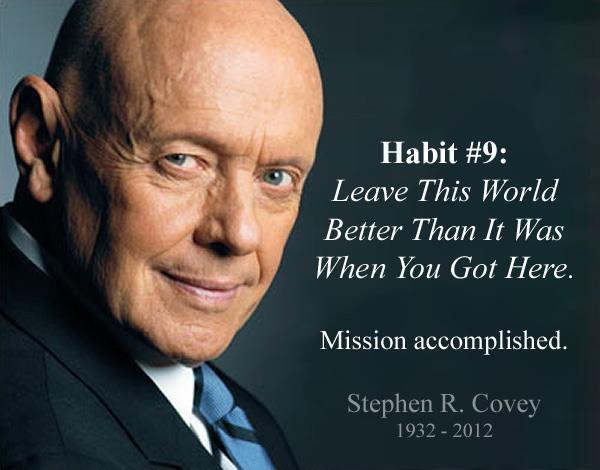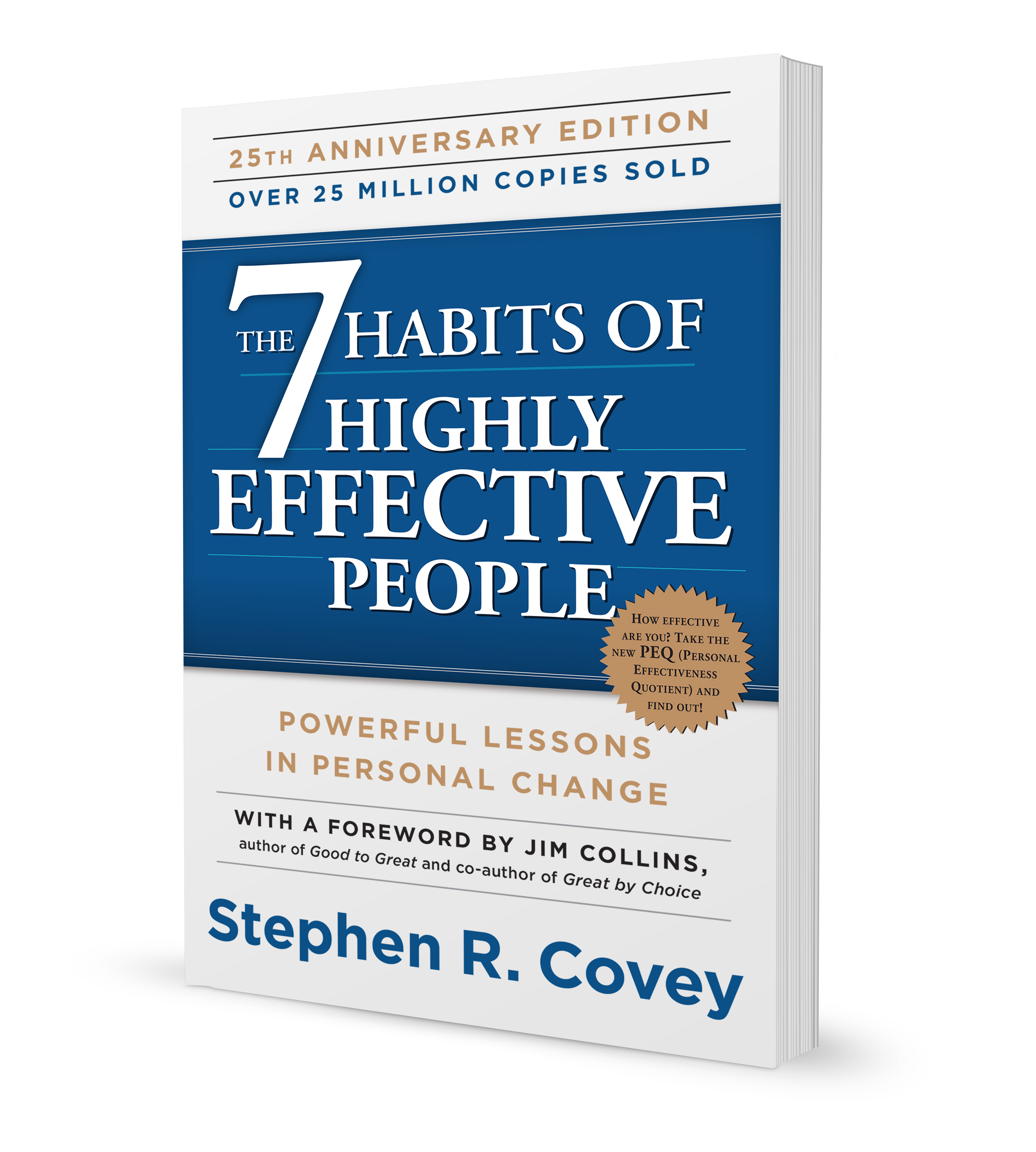

But that should be a small price to pay for what is a brilliant life re-engineering guide, enlivened by Covey's personal and family experiences. For a book that is so much about changing paradigms, it is remarkably representative of the paradigm of business thinking. It also means that the reader interested only in personal development may not like the management terms, diagrams and business anecdotes that fill it. This crossover status effectively doubled its market. The second, more practical reason for the book's success is that it is a compelling read both as a self-help book and a leadership/management manual. Covey believed that outward success was not success at all if it was not the manifestation of inner mastery in his terminology, 'private victory' must precede 'public victory'. Having previously studied the success literature of the last 200 years for a doctoral dissertation, Covey was able to draw a distinction between what he termed the 'personality ethic' - the quick-fix solutions and human relations techniques which had pervaded much of the writing this century - and the character ethic, which revolved around unchanging personal principles. Covey's message of 'restoring the character ethic' was so old-fashioned it seemed revolutionary. Suddenly, aspiring to be a 'Master of the Universe' in a shoulder-padded world did not seem to satisfy, and people were ready for a different prescription for getting what they really wanted out of life. The 7 Habits of Highly Effective People came out just as we entered the 1990s. What lifted it above the mass of books that claim the secret to a better existence?įirstly, it was timing.

Listen like a leader with these 9 tips to drive powerful conversations - powered by The 7 Habits of Highly Effective People®.Stephen Covey's book is one of the phenomena of modern personal development writing. With reputed sales of over 15 million copies and translations into 32 languages, it also forms the intellectual basis of a large company, Franklin Covey. Habit 5 is something you can practice right now. As you do it, your Circle of Influence begins to expand. Habit 5 is powerful because it is right in the middle of your Circle of Influence, meaning it is something you can always do because it is within your control. Logos - The reasoning part of the presentation.Pathos - Your empathetic side, showing you are in alignment with the emotional thrust of another person's communication.Ethos - Your personal credibility, the trust you inspire.There are three words that contain the essence of seeking first to understand: Win/Win solutions require a high degree of both. Seeking to understand requires consideration seeking to be understood takes courage.
STEPHEN COVEY 7 HABITS OF SUCCESSFUL PEOPLE HOW TO
Knowing how to be understood is the second half of Habit 5 and equally critical to reaching Win/Win solutions. You will also begin to appreciate the impact these differences can have as people try to work together in interdependent situations. CoveyĪs you learn to listen deeply to other people, you will discover tremendous differences in perception. "If I were to summarize in one sentence the single most important principle I have learned in the field of interpersonal relations, it would be this: Seek first to understand, then to be understood." - Dr. It takes time, but nowhere near the time that it takes to back up and correct misunderstandings when you're already miles down the road. Empathic listening is powerful because it gives you accurate data to work with. They're either speaking or preparing to speak.Įmpathic listening is listening with the intent to understand. Instead, most people listen to the reply. We typically seek first to be understood. Habit 5: Seek First to Understand, Then to Be Understood involves a deep shift in paradigm.


 0 kommentar(er)
0 kommentar(er)
